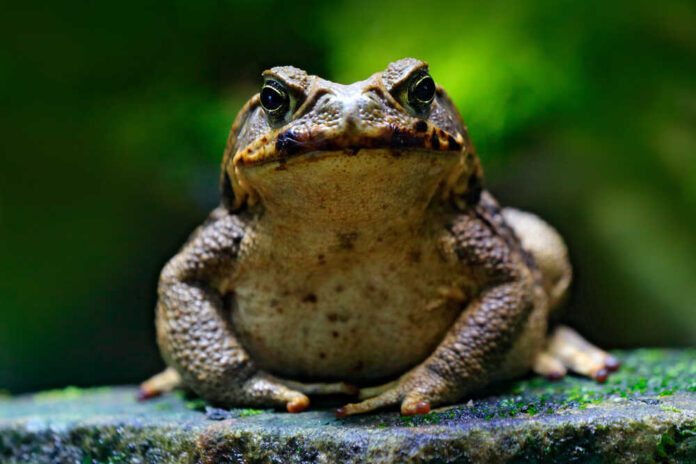With summer around the corner, local media outlets in Florida are warning homeowners to be on the lookout for invasive toads that are highly toxic, particularly if homeowners have pets.
According to the Florida Fish and Wildlife Conservation Commission, a pet that bites or swallows the toxic Rhinella marina, also known as cane toads, bufo toads, or giant marine toads, could die within 15 minutes if untreated.
The toads were first introduced in the state in the 1930s to control pests in sugar cane fields. Most of the cane toads in Florida are found in the south and central part of the state below the I-4 corridor, according to Fish and Wildlife.
If a household pet bites or swallows a cane toad, it releases a toxin that sticks to the mouth, causing the animal to become disoriented or frantic. The toxin turns the gums brick-red and leads to foaming at the mouth and seizures.
Cane toad trapper Jennifer Southall told WBBH that the amphibians reproduce at an alarming rate, with one female laying more than 30,000 eggs at a time. The eggs hatch in just three days, Southall said, leading to an explosion in the toad population during the summer months.
According to WBBH, dogs are especially vulnerable to being poisoned by cane toads but the toxin is also dangerous to humans, causing irritation to the skin and eyes.
Southall recommended that anyone who wants to trap and kill cane toads should wear eye protection and gloves. She said cane toads are toxic “at every stage of life” and even the eggs are poisonous.
If a pet comes into contact with a cane toad, homeowners should rinse the animal’s mouth for about ten minutes to remove the toxins, making sure not to spray the water into the animal’s throat. After rinsing, wipe down the tongue and gums with a towel and take the animal to the vet.
Fish and Wildlife encourages homeowners to keep the lawn mowed and the shrubs pruned up away from the ground to make it easier to find the toads. It also recommends that homeowners keep the yard clean of debris and never leave a pet’s food or water bowls outside.
Since cane toads are nocturnal, Fish and Wildlife recommends that homeowners keep their eyes on their pets when outside at night.














